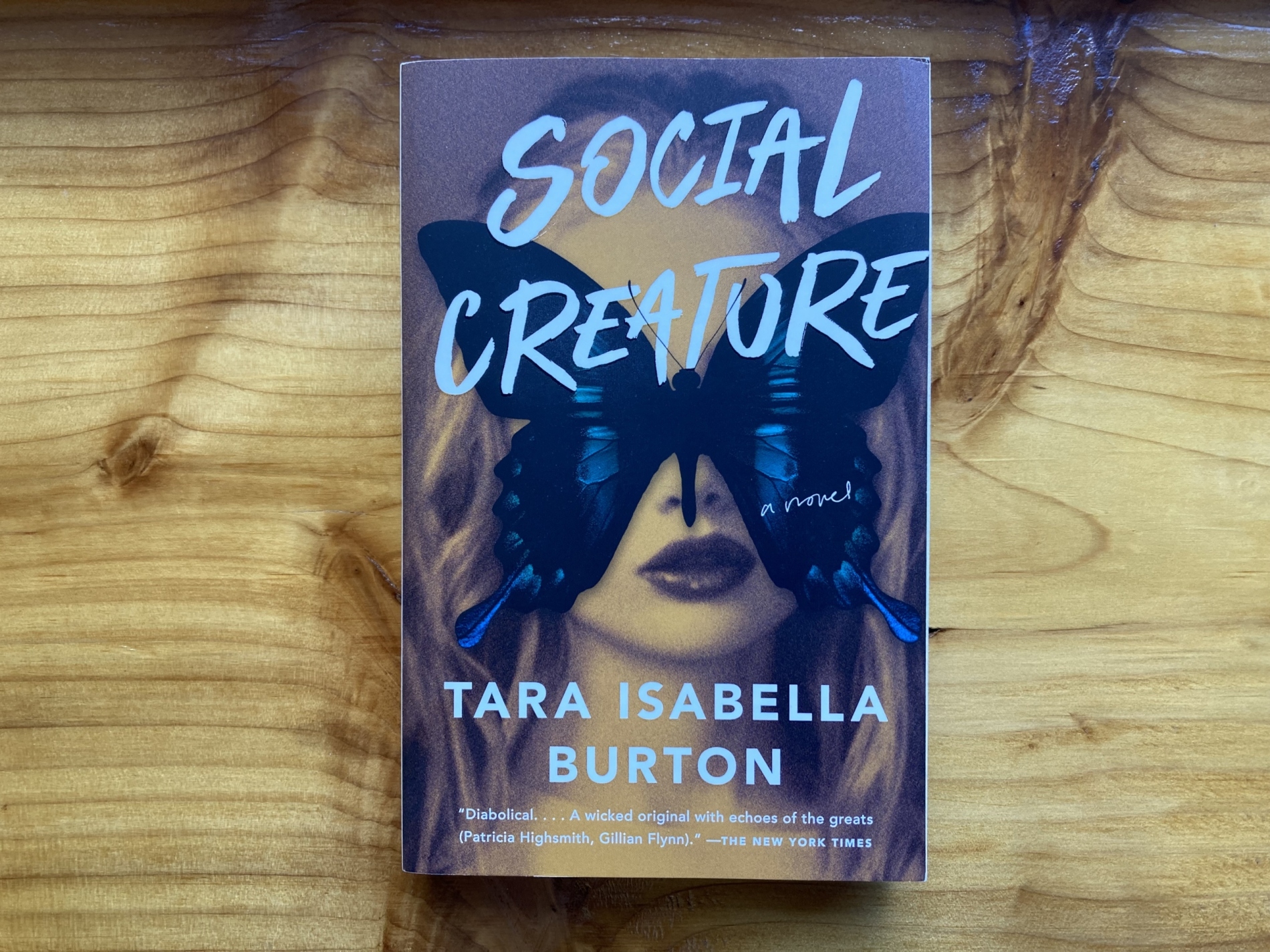Before I read Social Creature—in fact before I realized Tara Isabella Burton had published a novel in 2018—I read her nonfiction, Strange Rites: New Religions for a Godless World which was released two years later in 2020. I’m uncertain how Dr. Burton would respond to this suggestion, but I recommend you read them in the same order I did. The reason is that Strange Rites brilliantly brings into sharp and serious focus the social and cultural milieu in which the fictional story told in Social Creature is set and is believable. Without this broader understanding of our world—which many followers of Jesus do not have—it is easy to dismiss the story as fantastical. It is not, or perhaps it’s better to say this fictional story about modern life has cunningly accurate roots in the often-fantastical reality of our world.
Social Creature is a crime story of toxic friendship, sociopathology, obsession, the perennial human search for significance, online relationships, community, the addictive deceptiveness of social media, and how seeking to experience life to the fullest can put true happiness out of reach. “I was interested in characters in a pretty secular environment” Burton says in an interview on NPR, “searching for meaning, searching for order and structure in their lives and finding it through these illusory forms of self-creation.”
Though we may not know anyone whose lives look like the characters in Social Creature, these “illusory forms of self-creation” are passionately pursued by millions. Though the high-flying lifestyle in New York City that is revealed in Social Creature is unimaginable to me, many of the details are distressingly believable. Lauren Sarazen, in her review in the Los Angeles Review of Books (June 14, 2018), argues that the manipulation, money, and obsession in Social Creature has living exemplars:
While Social Creature seems just too glamorous and magnetic to be true, New York magazine recently ran a piece concerning a fake German heiress. Anna Delvey, a social-climbing con artist, scammed her way through New York, defrauding both banks and her friend out of a collective $275,000. Though Burton confirmed that she wrote Social Creature before becoming aware of the story, the similarities hammer home the mirror it lifts toward our irresponsible obsession with status and effortless living.
Or for another example, take the amazing pseudo-scientific affair of Elizabeth Holmes and her startup, Theranos, which drew in so many supposedly street-smart financiers for so much money. Her story can be seen in a 2019 documentary, The Inventor: Out for Blood in Silicon Valley, available on Amazon. Or read the two-part article in Vanity Fair (July/August 2022) about Elisabeth Finch, writer for the television series, Grey’s Anatomy who duped so many, so painfully by telling abuse and cancer survivor’s stories as her own. You can read Part One here, and Part Two here. Social Creature is fiction, but the sort of fiction that serves as a window of insight into our world.
Social Creature is a rollicking work of fiction, irreverent, often surprising, always unflinching, enough of a page-turner that it is easy to lose sight of the serious questions it implicitly (and occasionally explicitly) poses: Who are we, really, in a world where most of us know people and community primarily via social media? How does social media subvert relationships and is online community actually community at all? How is true human flourishing related to having fun, and to happiness? Can the search for the intense experience of “feeling alive” in otherwise relatively boring and mundane circumstances undercut the possibility of true flourishing? When do friendships become toxic? Since personal autonomy is so deliciously intoxicating and is so highly recommended in a consumer culture, is there a line after which it becomes fatal? What are the signs that the person that has the most resources, is the life of the party, and accumulates the most “Likes,” is actually a dangerous sociopath? Why are they so difficult to spot? Speaking for myself, though I pulled back from most social media some time ago, Burton’s novel caused me to think hard before ever clicking “Like” ever again.
These are, you might notice, uncomfortable questions. On the other hand, the best and most important questions usually are uncomfortable. Dr. Burton is a serious scholar and intense storyteller, so expect prose designed to awaken a slumbering church and a thoughtless culture.
“I want to really live,” Lavinia wrote to her teenage boyfriend. “All I want is to live.” [p. 163]. This is a human cry, a deeply human yearning, the desire of every person who has ever been born. It’s the heart yearning that catapults the characters in Social Creature all the way to murder.
Novel recommended: Social Creature by Tara Isabella Burton (New York, NY: Anchor Books; 2018) 273 pages.
Photo credit: the author with his trusty iPhone



